I invited self-published author and professional editor Tammy Salyer to explain the nuances of editors and proofreaders, and what indie authors should expect from each. Here’s what she has to say:
As a writer who has taken months, sometimes years, to complete a manuscript, the most important post-completion step every one of us should consider is having our work professionally edited and proofread. Publishing a novel complete with typos, misused words, and grammatical “oopses” will guarantee we lose our readership. Not just fans, but all readers. Period.
 An inalienable Law of the Universe says a first draft should NEVER see the light of day, much less the hopeful light of a potential new fan’s eyes when they click “buy” at their preferred online ebook retailer. There is nothing more bothersome than a mountainous pile of misplaced modifiers, dangling participles, split infinitives, and run-on sentences. Any rational hobbit, or human for that matter, would prefer a barefooted jog up the obsidian-flecked flanks of Mt. Doom to reading a tome that is the grammatical equivalent of Gollum reciting James Joyce poems after tossing back a pitcher full of Gandalf’s “special” tea.
An inalienable Law of the Universe says a first draft should NEVER see the light of day, much less the hopeful light of a potential new fan’s eyes when they click “buy” at their preferred online ebook retailer. There is nothing more bothersome than a mountainous pile of misplaced modifiers, dangling participles, split infinitives, and run-on sentences. Any rational hobbit, or human for that matter, would prefer a barefooted jog up the obsidian-flecked flanks of Mt. Doom to reading a tome that is the grammatical equivalent of Gollum reciting James Joyce poems after tossing back a pitcher full of Gandalf’s “special” tea.
Yet, the problem is that many of us in the self-publishing gig are new to the process of going from idea to print, and the quest for finding the Oracles of Editorial Delphi seems both uncertain and daunting. The three main steps to going from a haystack-in-a-dust storm mass of words to a refined and elegant novel are content editing, line and/or copyediting, and proofreading, in that order. Here is a look at each of these and how to select your editor du jour. (Not to imply you should eat your editor. The third rule of writing, behind using control-s religiously and never publishing your first draft, is to never eat your editor, just fyi).
1. First Round of Edits: Content Editors
CEs make you look HOT. They make your story stand out like a rock star amongst a sea of American Idol wash outs. They read your story and suss out all the ways in which you’ve excelled or haven’t lived up to your potential as a storyteller. Their focus is on your overall story arc, characterization, plot development and consistency, as well as the story’s structure, tone, and general marketability. They help you understand what should be improved and how.
CEs don’t fix your typos or grammar. In fact, a good CE doesn’t fix anything. They simply tell you what needs to be fixed. You’re the writer, you do the writing; they’re the coach, they do jumping up and down, wild gesticulating, and getting red in the face. Er, coaching.
When looking for a CE, find someone with a demonstrated combination of good writing skills and good “people” and communication skills. You need to like your CE, or at least be able to communicate well and respectfully with them. For you to be able to receive and act on good feedback, your relationship with your CE shouldn’t be adversarial.
Read their website and blog. Review their client’s works and any praise or feedback the CE has received. Knowing who to hire will also depend on your budget and their editing process. A good CE can range from $45 to $150 per hour. Others charge by project. Be up front about your expectations and needs, and ensure they are being up front about what they can provide. You’ll be hanging on this person’s word; make sure it’s a word you trust. To ensure you know who you’re getting, rely on your friends and colleagues to make recommendations.
If a professional edit is out of the question for financial reasons, join or build your own critique group of authors with similar interests, and recruit as many good beta readers as you can. (Critique groups and beta readers will be another post!)
2. Second Round of Edits: Copy Editor and Line Editor
CEds and LEs make you look smart. They read your manuscript line by line and check for overall narrative consistency (i.e., correct tense used throughout, consistent storyline facts), clarity of your expressed ideas, and correct sentence structure and word usage. If you’re going the traditional route, a copy/line edit is appropriate for a finished and vetted manuscript that needs simple fine-tuning before submission to an agent or publisher. Some CEds also do fact-checking and, if your work is being submitted to a specific publishing house or literary magazine, they ensure your work conforms to in-house style guides and rules.
The number one thing a LE or CEd doesn’t do is modify the author’s voice. When your story comes back, it should still sound like you wrote it! If you’re using descriptions like garnet and cerulean, your novel shouldn’t come back to you changed to red and blue-green.
Much like finding an editor, when picking a copy editor or line editor, you still want to review their client list and any of their own writing, such as their website or blog. You know if you find typos there, you can’t rely on them to give your manuscript the attention to detail it needs. They usually charge from $25 to $45 per hour, and again, word of mouth is a good ticket for finding someone you can rely on and trust.
3. Final Edit: Proofreader
Proofreaders make you look like a nerd (which is a GOOD thing). Proofreading is the absolute final step in any writing project. After the content rewrites, the sentence tightening and restructuring, and the snipping of those dastardly dangling modifiers, it’s time to go through your gleaming gemstone of a manuscript and buff out the final flaws. Missed punctuation, thats instead of whiches, its instead of it’s (and vice versa), and all those tiny things that slip through the cracks need to be rooted out and corrected.
In most cases, people who offer their services as a copy or line editor include proofreading in their curriculum vitae. As proofreading is more of a technical expertise than a creative one and usually comes after a work has been through many passes, it is the least time-consuming, and thereby, least expensive (though no less IMPORTANT) final step to preparing to publish. Most proofreaders offer their services from between $20 and $30 per hour.
For all of the above, besides word-of-mouth, you can find freelancers on sites such as Media Bistro’s Freelance Marketplace, Publisher’s Marketplace, or the Editorial Freelancers Association. However, much of the work of deciding who best fits your needs still will come from talking with your friends and colleagues.
In summary, you would never spend years stretching a canvas over a frame, infusing your masterpiece with layer after layer of paint, and then hang it in the Museum of Modern Art without a frame. A thorough and complete process of editing, copy and line editing, and proofreading is your frame. And if you want fans who’ll buy your art, even the frame has to impress them (and match the drapes).
Additional Resources:
- Author Nathan Bransford offers an excellent post about the steps he follows before sending his work out to be editing–pre-editing, self-editing, and finally, professional editing: How I Edit
- The Write to Done website offers Eight Simple Tips for Editing Your Own Work
- My own look at self-editing, How to Avoid the Red (Pen of) Death
- Author Lindsay Harrell discusses building a relationship with an editor and what to expect
- Author Nicholas Rose makes a good case for not skimping on the editing phase
- A checklist for line-editing from the Deep Genre blog
- Another look at all of the above material by fantasy author Lindsay Buroker

Tammy Salyer is a professional writer and copy editor. With ten-plus years of experience writing and editing everything from grant and research materials, to marketing and advertising copy, to web content, blogs, novels and short stories, Tammy is well-versed and comfortable with the most commonly known punctuation and style guides (i.e., APA, AP, CMS, Words into Type, etc.). Additionally, she has a certificate in copyediting from Media Bistro, a respected media and journalism organization. She also provides services as an ebook formatter, supporting .mobi, .epub, and Smashwords formats. Her first short story collection, On Hearts and Scorpions and first novel, Contract of Defiance, both debuted in Spring 2012. Please visit Tammy’s website to learn more.
Readers, what kind of experiences have you had with book editors? What have you learned? What will you do next time – or never do again? Please leave a comment and dish!
Did you enjoy this article? Subscribe to my blog and you’ll never miss my weekly posts! Just enter your email address in the upper right corner of this page. It’s easy, and I won’t share your contact information with anyone!



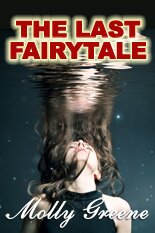
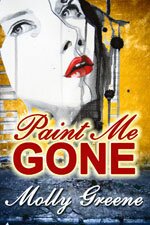
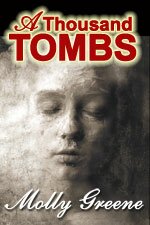
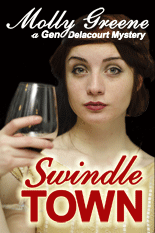
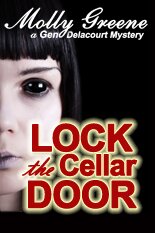
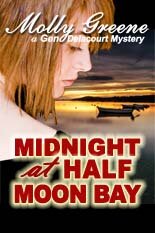
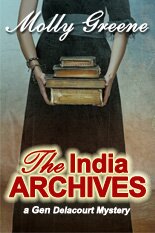
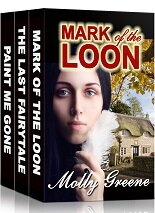

Thanks again for having me, Molly!
Tammy, on behalf of all my readers I want to thank you for sharing this valuable information!
Thank you for another informative read! I’m close to this stage myself at the moment so this info is both helpful and a great insight into the ins and outs – perfect when you’re floundering around in the dark somewhat…!
Andy, so glad you liked Tammy’s post … we’re all kind of floundering in the dark here together. Hope this helps!
That is a lot to keep in mind. I have published an ebook a year ago, but I only had a couple of people proof read it to give me gramatical advice. A content editor sounds like a good person to go to for more expertise.
Best of luck to you on your project!
Great information. Thank you for sharing as I am at this stage in the writing of Reaping and was researching this very topic a bit ago.
Can’t thank you enough for this great post. What with my “Rings of Trust” coming out in the next few hours, I decided to going Publishers Marketplace yesterday. Wow! Got an amazing number of hits. Coulda knocked me over with a feather. I also like that I can cancel at any time. Tells me this place isn’t a clip joint. Again, many thanks!
Hello!
Thanks for sharing this very sensible advice; I would just add that, once you find a great editor, stick with them! Build that relationship and it will stand you in good stead for all future drafts. My editor knows me well and is all too aware of my foibles and deficiencies! I in turn trust her judgement.
Result: a polished, readable, and hopefully exciting/entertaining novel!
Best regards,
Scott Hunter
So true, Scott. Great advice!
Thanks, Scott, and you’re right! When you find a relationship that works, keep it. 🙂